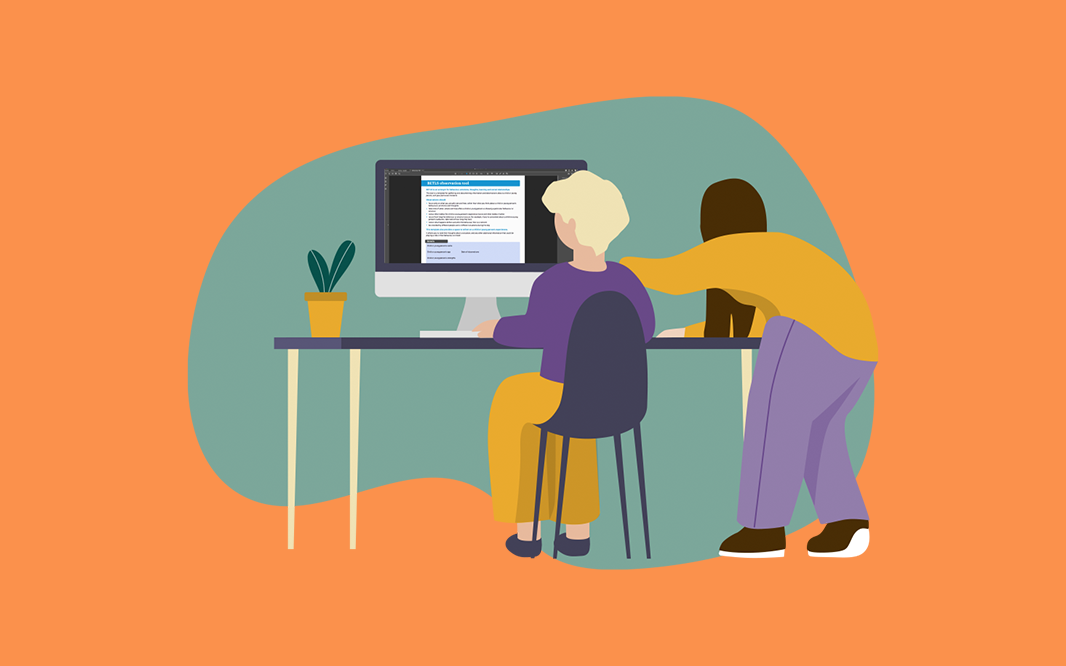On this page
Before you start
Here’s some useful information before you start applying.
- When you apply, your program goes through an assessment process by an independent evaluator and is rated for the Be You audience of educators. Ratings are assigned for your program’s evidence and for its implementation.
- You can start and submit an application at any time. During the process, you can pause your application (to gather information, for example), save a link to your application and resume filling in the form when you’re ready.
- The application process is in two parts: There are 9 minimum entry requirements you must meet, followed by 69 questions in the application form. Read the rest of this guide to help you plan your application.
Minimum entry requirements
To be listed in the Programs Directory, your program must meet the minimum entry requirements. Your program must:
- align with one or more of the 5 Be You Professional Learning domains on the Be You website
- align with the learning areas of the Australian Curriculum or the outcomes of the Early Years Learning Framework
- be available in Australia
- be supported by a training, delivery or implementation manual, or guide
- be more than a one-off session
- target an audience of children, young people, parents, carers or families, early childhood educators, school age care educators or teachers
- have at least one research or evaluation study, each with a minimum of 20 participants, which demonstrates a positive impact on mental health outcomes for children or young people.
Online application form
Once you’ve met the minimum entry requirements online and accepted the Programs Directory Terms and Conditions for applicants, you’ll automatically progress to the online application form.
There are 69 questions in the application form.
To help you respond, there are tool tips for some questions, with information that explains more about that question and the response required. In the form, click on the ‘i’ icon to see each tip.
The questions are in 3 parts and seek the following information.
Program details (questions 1 to 29)
These questions ask for details such as your program’s title, your organisation name, website, the program’s aims, costs, and information about the program content and its delivery.
Most of the responses to these questions will be published on the public Programs Directory webpage so educators can find and browse your program and compare it with other programs in the directory.
Visit the Programs Directory webpage and click on ‘Learn more’ within a program tile to see an example of how these questions relate to information about a program on the website.
Evidence base (questions 30 to 39)
These questions relate to the research or evaluation study that you provided so the independent evaluator can assess your program.
You’ll need to upload relevant documents (for example, reports, publications, analysis) to support your answers. Please be sure to upload full evaluation reports, not summaries or overviews.
You may submit up to 6 research or evaluation studies for your program. You’ll have to respond to these 9 questions (30 to 39) for each study you submit.
Your evaluation studies will not be published on the website or made publicly available.
Implementation and context (questions 40 to 69)
These questions ask about the implementation and context for the evaluation study (or studies) that you provided so the independent evaluator can assess your program.
The questions relate to the acceptability of your program by participants, the training and support provided to implement your program, and whether there are specific groups your program might not be suitable for.
The questions also relate to the context of the evidence for your program, such as education levels, special groups and the geographical location. You’ll have to respond to these 29 questions (40 to 69) for each study you submit.
Application assessment
Once you’ve uploaded your evidence and submitted your application, the independent evaluator will assess your responses. The assessment process takes approximately 5 weeks from the time you submit.
Confirming the rating
If your program is awarded ratings, you’ll receive a ratings report from the independent evaluator. The ratings will be for both the evidence for your program and the implementation of your program. Information from the ratings report, such as your program’s ratings and a summary of the evidence and implementation factors that informed the ratings, will appear on your program page in the Be You Programs Directory.
Publishing the program on the Be You website
Prior to publishing your program listing in the Programs Directory, we will proofread your listing to ensure it meets our quality assurance and accessibility standards.
We’ll also select an image from the Be You catalogue of approved images to include with your listing.
You’ll have the opportunity to review the listing before we publish. Your evaluations studies will not be published or made publicly available.
If information about your program changes significantly after it’s been published on the Be You website and you’d like to update your listing, please contact us
Application terminology
F2F: Face to face training.
Pre-post design: One group measured before the intervention and again after the intervention.
Quasi-experimental design: An empirical interventional study used to estimate the causal impact of an intervention on target population without random assignment.
RCT (randomised controlled trial): A study design that randomly assigns participants into an experimental group or a control group.
SES: Socio-economic status.
ToC (Theory of Change): A comprehensive description and illustration of how and why a desired change is expected to happen in a particular context.
TTT (train the trainer): Training potential instructors or subject matter experts to enable them to train other people in their organisations.
Any questions?
Still have questions about applying to list your program? Contact us.
